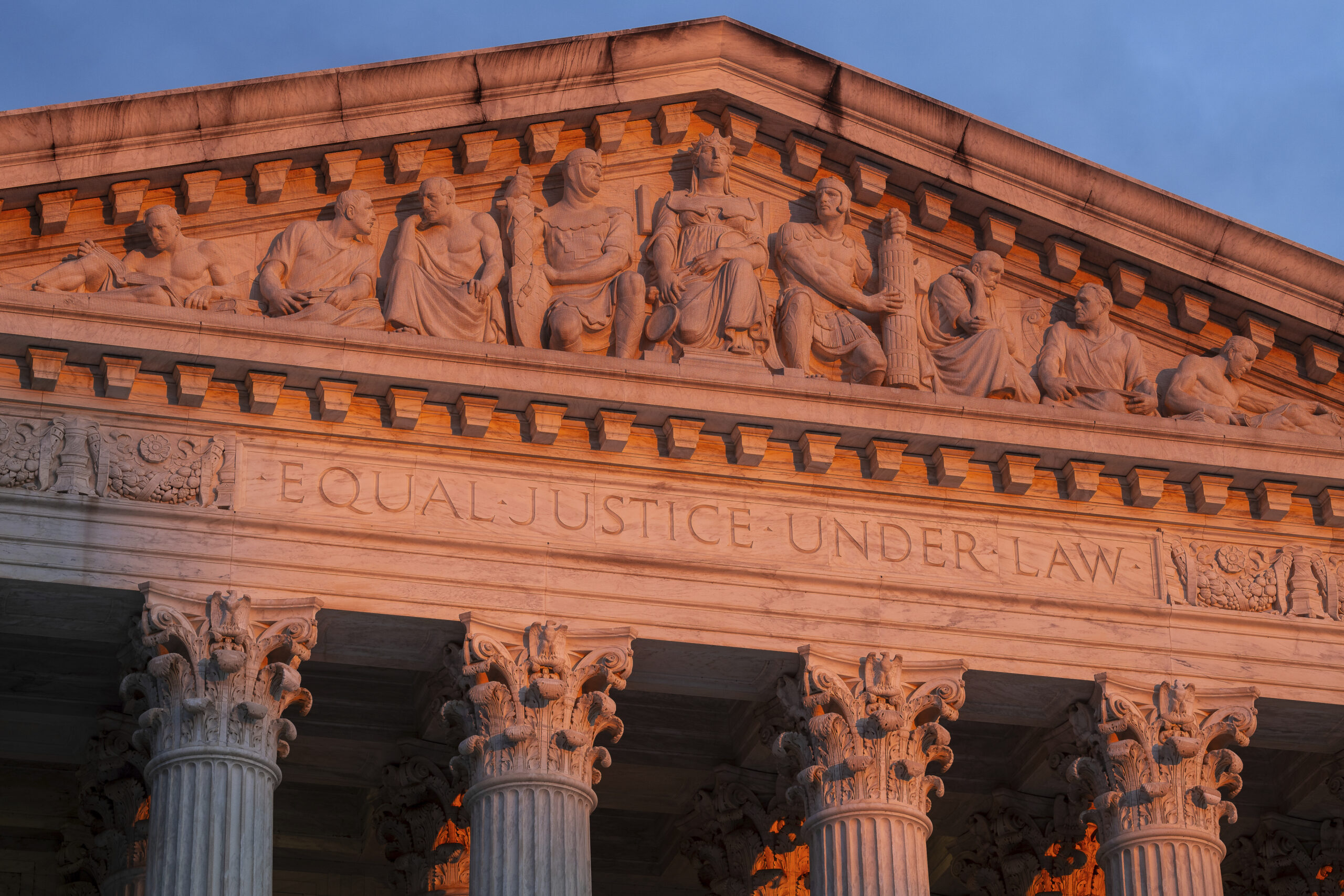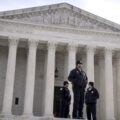The fight to determine whether Donald Trump can legally return to the White House hinges on the interpretation of two rarely-invoked sentences written more than a century and a half ago. These sentences, known as the insurrection clause, make up Section 3 of the 14th Amendment, and their meaning will be publicly debated by the Supreme Court on Thursday as the court hears oral arguments on whether the provision disqualifies Trump from holding office again.
A bombshell decision made by Colorado’s top court in December declared Trump ineligible due to his efforts to subvert the 2020 election and his role in inciting the violent attack on the Capitol on January 6, 2021. Similar challenges are pending in numerous other locations across the country.
While the court, which is currently controlled by a conservative majority, including three of Trump’s own nominees, is expected to overturn the Colorado decision and allow Trump to remain on the ballot, the specific route the court will take to reach this result remains uncertain.
Does the Insurrection Clause Apply to Trump?
Trump’s main argument in this politically charged case centers around a semantic point: he claims that he is not "an officer of the United States." This distinction is crucial since the insurrection clause applies only to certain officeholders who have taken an oath to "support the Constitution" and then engaged in insurrection. For the clause to apply to Trump, he must have taken such an oath as an "officer of the United States" when he was sworn in as president.
Trump and his allies argue that other parts of the Constitution make it clear that only the president’s appointees, and not the president himself, are considered officers of the United States. They also note that the presidential oath does not explicitly promise to "support the Constitution," although presidents do vow to "preserve, protect, and defend" the nation’s founding document.
Those challenging Trump’s eligibility argue that the Constitution refers to the presidency as an "office" approximately 20 times. They also point to evidence from early American history that supports the understanding that the president is an officer of the United States.

They further argue that Trump’s position defies common sense. It seems illogical to think that the drafters of the 14th Amendment, who aimed to protect both federal and state governments from insurrectionists following the Civil War, would not have tried to disqualify a president who engaged in insurrection from holding office again.
The Denver trial judge who initially presided over the Colorado case agreed with Trump on the "officer" point, but the state’s Supreme Court sided with the challengers.
Was January 6th an Insurrection?
The 14th Amendment refers to "insurrection or rebellion," but delving into the precise meaning of these terms could be a sensitive issue for some justices. They may hesitate to address this question out of fear of being portrayed as either condemning or sympathizing with the Trump supporters who stormed the Capitol on January 6th, creating chaos and violence while Congress was certifying Joe Biden’s victory.
The trial court judge who examined the evidence in the Colorado case concluded that the events of that day did constitute an insurrection. Higher courts typically give significant deference to such fact-finding.
Over 1,300 criminal cases have been filed in relation to the events of January 6th. However, no one has been charged with the specific crime of insurrection. Approximately 14 individuals have been charged with or pleaded guilty to the related offense of seditious conspiracy. Notably, when the Justice Department brought a criminal case against Trump last August for his efforts to subvert the 2020 election, there was no charge of insurrection.
Appellate courts have not yet resolved the question of whether January 6th constituted an insurrection. While many district court judges who have presided over cases involving January 6th defendants have described the attack as an "insurrection," the issue has not been directly disputed in any of these cases.
Did Trump "Engage" in Insurrection?
The insurrection clause applies only to individuals who "engage" in insurrection. Trump’s lawyers argue that even if January 6th was an insurrection, the former president did not engage in it. They wrote, "President Trump never participated in or directed any of the illegal conduct that occurred at the Capitol on January 6, 2021."
However, it is worth noting that the Capitol riot followed weeks of Trump provoking his followers on social media and elsewhere, including by promising that January 6th "will be wild!" On the day itself, he repeatedly urged his supporters to "fight" and twice encouraged them to "fight like hell." Evidence collected by the House Jan. 6 committee also indicated that Trump was aware that some of those who attended his speech were armed.
Trump’s attorneys argue that a more direct role is required to establish engagement in insurrection, such as Trump taking up arms himself. They also highlight that Trump included calls for calm in his speech and tweets on January 6th, claiming that he "repeatedly called for peace, patriotism, and law and order." While Trump’s 71-minute speech on the Ellipse did include a call to "peacefully and patriotically make your voices heard," the challengers from Colorado dismiss it as a "single flat-affect" mention of non-violence in an otherwise inflammatory address.
Does Congress Need to Pass a Law?
The question of "who decides?" often poses a challenge in legal disputes. In this case, determining who should have the authority to disqualify individuals from public office due to their involvement in insurrection against the U.S. government is not explicitly addressed in the Constitution.
Congress could pass a law outlining procedures for disqualifying alleged insurrectionists, as it did after the Civil War. However, Congress reversed course shortly afterward, although some related language remained on the statute books until 1948. (The criminal statute against insurrection remains in place.)
Colorado’s courts concluded that they have the power to determine whether Trump engaged in insurrection and to bar him from the ballot. Trump’s legal team argues
—————————————————————————————————————————————
By: Josh Gerstein
Title: Supreme Court Battle Over Trump’s Ballot Eligibility: 6 Key Questions
Sourced From: www.politico.com/news/2024/02/07/trump-supreme-court-case-questions-00140255
Published Date: Wed, 07 Feb 2024 21:24:59 EST





Leave a Reply